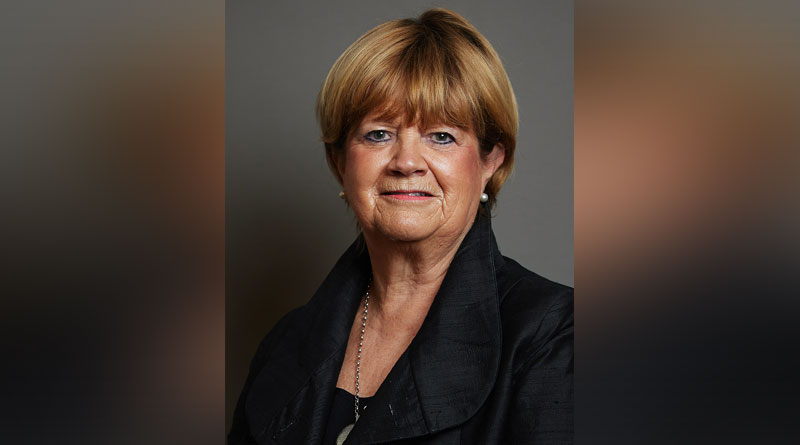UK Covid-19 Inquiry Launches First Investigation
Baroness Heather Hallett officially launched the UK Covid-19 Inquiry and opened its first investigation into how well prepared the UK was for a pandemic. Baroness Hallett also set out an ambitious timetable, with preliminary hearings starting this year, and the first witnesses to be called next spring.
Baroness Heather Hallett opening statement Inquiry
Chair, Baroness Heather Hallett said:
“It’s time for facts, not opinions – and I will be resolute in my quest for the truth. The Inquiry is already gathering evidence and I will be holding public hearings next year.
“Our work must be swift. The Inquiry’s scope is broad, so we will start with the most pressing questions – was the UK prepared for a pandemic? I will share more information on our investigations as our plans evolve.
“When meeting those who lost loved ones earlier this year, I was struck by the devastating nature of their loss, exacerbated by the impact of the restrictions in place at the time on their ability to grieve. Millions felt hardship and loss during the pandemic, and for some life will never feel the same again.
“I will do my very best to undertake the Inquiry in a way that acknowledges this suffering, and seeks to reduce the scope for others to suffer in the same way in the future.”
The Terms of Reference are extensive, as befits an inquiry into an event of this magnitude. To achieve the depth and breadth needed, the Inquiry will be taking a modular approach to its investigations. The Inquiry’s first investigation, Module 1, which opens today, will examine the resilience and preparedness of the UK for the coronavirus pandemic.
Module 2 will be split into parts and will examine core political and administrative governance and decision-making by the UK government. Modules 2A, 2B and 2C will address the same overarching and strategic issues from the perspective of Scotland, Wales and Northern Ireland, and hearings will take place in each nation. Module 3 will investigate the impact of Covid, and governmental and societal responses to it, on healthcare systems, including on patients, hospital and other healthcare workers and staff.
The Chair has also set out the timetable for the next 12 months. The Inquiry’s first procedural hearings will begin in September and October for Modules 1 and 2. Public hearings for Module 1 will begin in spring 2023 for Module 1 and summer for Module 2. More information on Module 3 timings will be available in the coming weeks.
The launch marks an important day for those with an interest in Module 1 to consider whether they wish to apply for Core Participant status. Core Participants have a particular formal role within the module. Applications will be open from 21 July to 16 August and more details are available on the Inquiry’s website.
The Inquiry will announce further modules in 2023. These are expected to cover both ‘system’ and ‘impact’ issues including: vaccines, therapeutics and anti-viral treatment; the care sector; Government procurement and Personal Protective Equipment (PPE); testing and tracing; Government business and financial responses; health inequalities and the impact of Covid-19; education, children and young persons; and the impact of Covid-19 on public services and on other sectors. The Inquiry will be looking at the impact of the pandemic on inequalities at every stage of its investigations.
Responding to the launch Dr Emma Runswick, deputy chair of BMA council, said:
“We welcome Baroness Hallett’s determination to gather a wide range of evidence and pursue the truth about the UK Government’s handling of the Covid-19 pandemic. The families of the more than 200,000 people who have lost their lives to Covid-19, as well as the healthcare workers who have spent more than two years working in the most harrowing conditions, deserve answers. The nation also needs assurances from the Government that they will take the findings on board to prevent tragedy on this level in the future.
“The BMA will be forthright in representing doctors as the inquiry gathers its evidence and we have already started work by publishing a series of reports on the nation’s response to the pandemic1. These reports show beyond doubt that the UK Government has failed in its duty of care to the workforce; through the shortages of PPE and protection for healthcare workers, the disproportionate impact on those from ethnic minority communities, the harrowing rates of burnout and exhaustion, and the lack of preparation for a pandemic.
“It is positive to hear Baroness Hallett confirm that the inquiry will publish reports with analysis, findings, and recommendations whilst its investigations are ongoing. We cannot afford further delay in understanding the UK Government’s response to the pandemic. The BMA would welcome evidence that the UK Government has learnt lessons. The Government continues to make errors such as withdrawing special Covid leave for NHS staff, dialling back protections in healthcare settings, and failing to plan for the NHS workforce. We are concerned that alongside ongoing mismanagement of this pandemic, there is still no plan for how to manage the next pandemic or health crisis. We hope that the inquiry’s approach will prompt leaders to improve the nation’s preparedness and response to current and future health crises.
“As the inquiry begins its work, we are preparing to publish two further reports detailing the effectiveness of the Government’s public health response to the pandemic, and the impact of the pandemic on population health and inequalities. We look forward to publishing this evidence and presenting our findings to the public inquiry in due course.”






